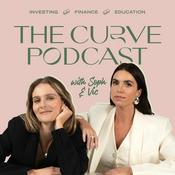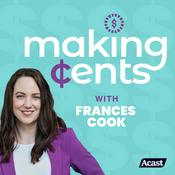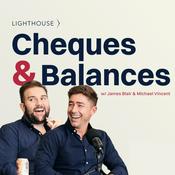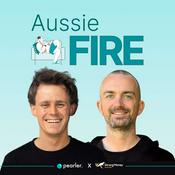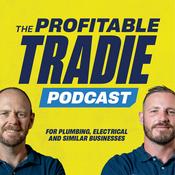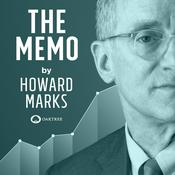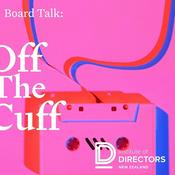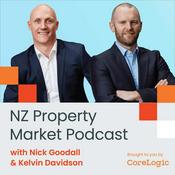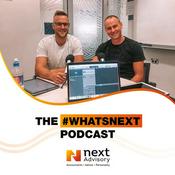136 episodes
303: Hybrid Assistive Limb (HAL) + Neuroplasticity = Improved Outcomes For Individuals With Neurologic Conditions
02/2/2026 | 40 mins.In this episode, Erin Gallardo, PT, DPT, NCS interviews physical therapist Mariah King, PT, DPT from RISE Healthcare Group and Hiroki (Hiro) Kimura from Cyberdyne about the HAL (Hybrid Assistive Limb) robotic exoskeleton and its role in neurologic rehabilitation. They discuss how the HAL system reads patients' intent to move via surface EMG signals and converts those signals into assisted movement to drive neuroplasticity and functional recovery for people with spinal cord injury, stroke, TBI, Parkinson's disease, and progressive neuromuscular disorders such as MS, SMA, and muscular dystrophy. Mariah explains RISE's one-on-one outpatient model, how patients are evaluated for HAL use, typical dosing (2–3x/week over about 2 months), and the outcome measures they track, including 10-Meter Walk, 2-Minute Walk, 30-Second Sit-to-Stand, and TUG. She shares powerful case examples, including a person with MS who relies on a wheelchair for mobility progressing to prolonged standing and assisted gait, and another individual with MS whose falls dropped from several per month to just one across four months. Hiro digs into what makes HAL unique compared to other exoskeletons: its emphasis on intention-based control, the ability for therapists to visualize and shape EMG patterns (for example, reducing co-contraction), and asymmetric or joint-specific assistance tailored to each limb. They also touch on the different HAL configurations (lower limb, single-joint, lumbar), its current status as a clinic-based rehab device (not take-home), billing considerations, the new pediatric version and forthcoming wrist device, as well as opportunities for students, clinicians, and clinic owners to get involved with RISE's HAL programs.
Website: www.risehealthcaregroup.com
Instagram: risehealthcaregroup
Facebook: risehealthcaregroup
YouTube: https://www.youtube.com/@risehealthcaregroup7766
Cyberdyne USA Inc.
https://www.cyberdyne.jp/english/
[email protected]- In this episode, hosts Erin Gallardo, PT, DPT, NCS and Claire McLean, PT, DPT, NCS discuss a new research article, "Refining maximal heart rate estimation to enhance exercise recommendations for persons with Parkinson's disease." Parkinson's is a multi-system condition and changes to the function of the autonomic nervous system are common. At times this can present as a person with PD having trouble reaching aerobic heart rate zones calculated based on age while they're performing high intensity exercise. Claire explains the challenges they've faced using standard heart rate formulas and color-zoned monitoring apps when many clients appear stuck in a "gray zone," likely due to this autonomic dysfunction and chronotropic incompetence common in Parkinson's. After exploring but struggling to access cardiopulmonary exercise testing (CPET)—the gold standard for determining true maximal heart rate—Claire finds this new study, which uses CPET data from a cycling trial to derive a more accurate regression-based equation for people with Parkinson's: 166 − (1.15 × age) + (0.60 × resting heart rate). She describes how they are now applying this formula in practice by calculating individualized max heart rates, manually updating values in their OnBeat app, and offering a public calculator via their website so people with Parkinson's and clinicians can easily generate appropriate training zones. This shift should make target zones more realistic, motivating, and safer. Listen to the show to easily incorporate this research into your practice today!
Pull up the article here (free full text available): https://pubmed.ncbi.nlm.nih.gov/40194736/
Use Claire's calculator that uses the research-based formula here: https://www.roguept.com/cardio 301: Multi-System Approach To Treating Individuals With Long COVID Currently With Jennifer Lazaro, PT, DPT, NCS
19/1/2026 | 42 mins.In this episode of the I Love Neuro podcast, host Erin Gallardo, PT, DPT, NCS interviews physical therapist and neuro rehab residency coordinator Jennifer Lazaro, PT, DPT, NCS about evaluating and treating people with long COVID and dysautonomia. Jennifer notes the similarities in presentation for individuals who have post-COVID those with other conditions affecting the autonomic nervous system, like concussion with cognitive fog, severe fatigue, post‑exertional malaise, dizziness, and orthostatic intolerance. She walks through practical assessment strategies such as active stand testing, symptom‑mediated exercise testing, and multi‑system screening to differentiate vestibular, cardiac, pulmonary, and autonomic drivers. Jennifer outlines how she starts with education on the autonomic nervous system, diaphragmatic breathing, and strict pacing, then progresses patients from supine conditioning through graded dysautonomia protocols like the Adapt protocol, emphasizing heart rate parameters, symptom monitoring, and buy‑in to "doing less to do more." She highlights the importance of interdisciplinary care with OT, speech, cardiology, neurology, and mental health, shares a powerful success story of a college student who returned to school after structured rehab, and offers real‑world strategies for self‑management using wearables, pacing tools, and lifestyle changes in sleep, hydration, and daily routines.- In this 300th episode, hosts Erin Gallardo, PT, DPT, NCS and Claire McLean, PT, DPT, NCS invited long-time collaborator JJ Mowder-Tinney, PT, PhD, NCS to join so we could recap the best takeaways from Dendrite Expansion Days (DED), NeuroSpark's three-day, fully experiential education event for OTs and PTs. We share how Naomi Castro's "falling well" course progressed clients from floor work to standing falls in one session, describe hands-on equipment stations featuring frictionless sheets, BlazePod, Rifton, Saebo, UprightVR, and more, and highlight real client stories—especially Connor, a young man with severe ataxia who gained new independence and freedom using a transfer pole and the Rifton Pacer overground gait trainer. The conversation emphasizes why equipment can be a powerful ally in neuro rehab, the importance of collaborating with vendors and fellow clinicians, and how community events like DED spark practical, immediately applicable ideas for improving outcomes and patient autonomy. You'll gain insights to use in your practice today!
- Do you feel ready for that next big step? A transition in your career like leaving your job to start your own business, or transitioning your side gig to full time, or hiring your first employee. Neither did any of us! In this episode hosts Erin Gallardo, PT, DPT, NCS and Claire McLean, PT, DPT, NCS have a discussion with NeuroBiz coach Emily Duval Ledger about what it really means to be "ready" for big transitions like starting a business, leaving a job, or hiring your first team member. We share our stories like Claire and Emily opening brick-and-mortar gyms, Erin and Claire starting and building NeuroCollaborative, Erin transitioning from working in the clinic to going full time in NeuroCollaborative, and all of us navigating business entities, taxes, and imperfect systems. This discussion will help you see the way we worked through fear, uncertainty, and messiness. Learn from the mistakes we share and how we fixed them like when Claire's corporation paperwork was filed wrong. The episode closes with encouragement for listeners who are "ready-adjacent" to take the next step and an invitation to connect, join our biz group, or come on the podcast to talk through your ideas with us.
Join the NeuroBiz Besties free slack group!
Set up a discovery call with Emily here!
DM us on IG if you want to discuss your business questions
More Business podcasts
Trending Business podcasts
About I Love Neuro
We are a couple of neurologic physical therapists on the quest to keep the passion, commitment, and possibilities alive for those who love neuro rehab and wellness like us, without burnout and overwhelm. This show is great for neuro therapists and trainers looking to stay up to date and make a greater impact. Join us in this important movement to elevate healthcare!
Podcast websiteListen to I Love Neuro, The Prof G Pod with Scott Galloway and many other podcasts from around the world with the radio.net app
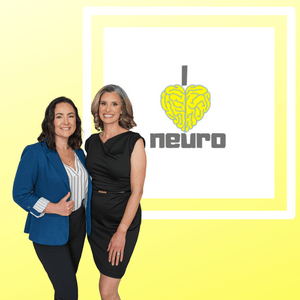
Get the free radio.net app
- Stations and podcasts to bookmark
- Stream via Wi-Fi or Bluetooth
- Supports Carplay & Android Auto
- Many other app features
Get the free radio.net app
- Stations and podcasts to bookmark
- Stream via Wi-Fi or Bluetooth
- Supports Carplay & Android Auto
- Many other app features


I Love Neuro
Scan code,
download the app,
start listening.
download the app,
start listening.






